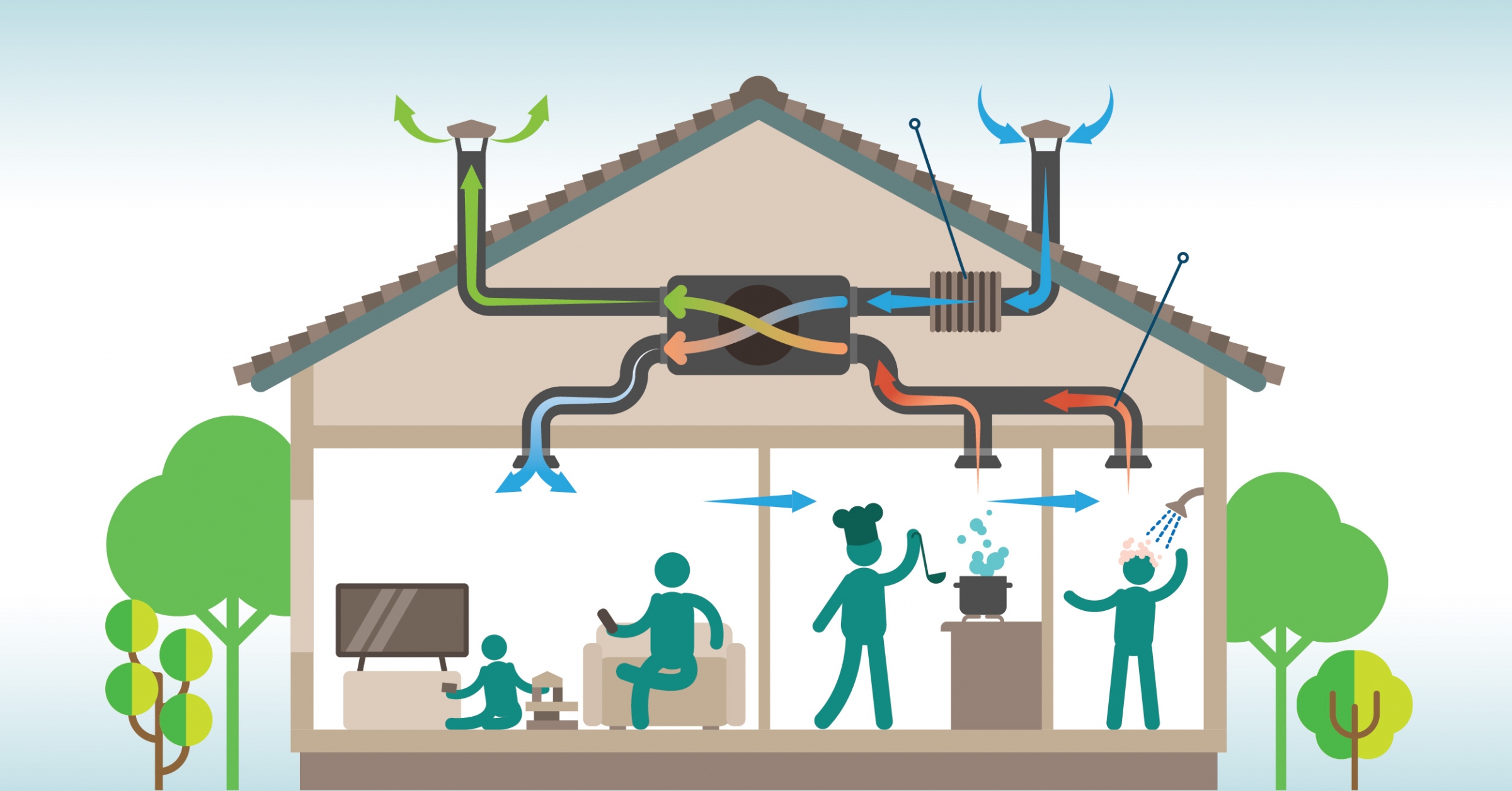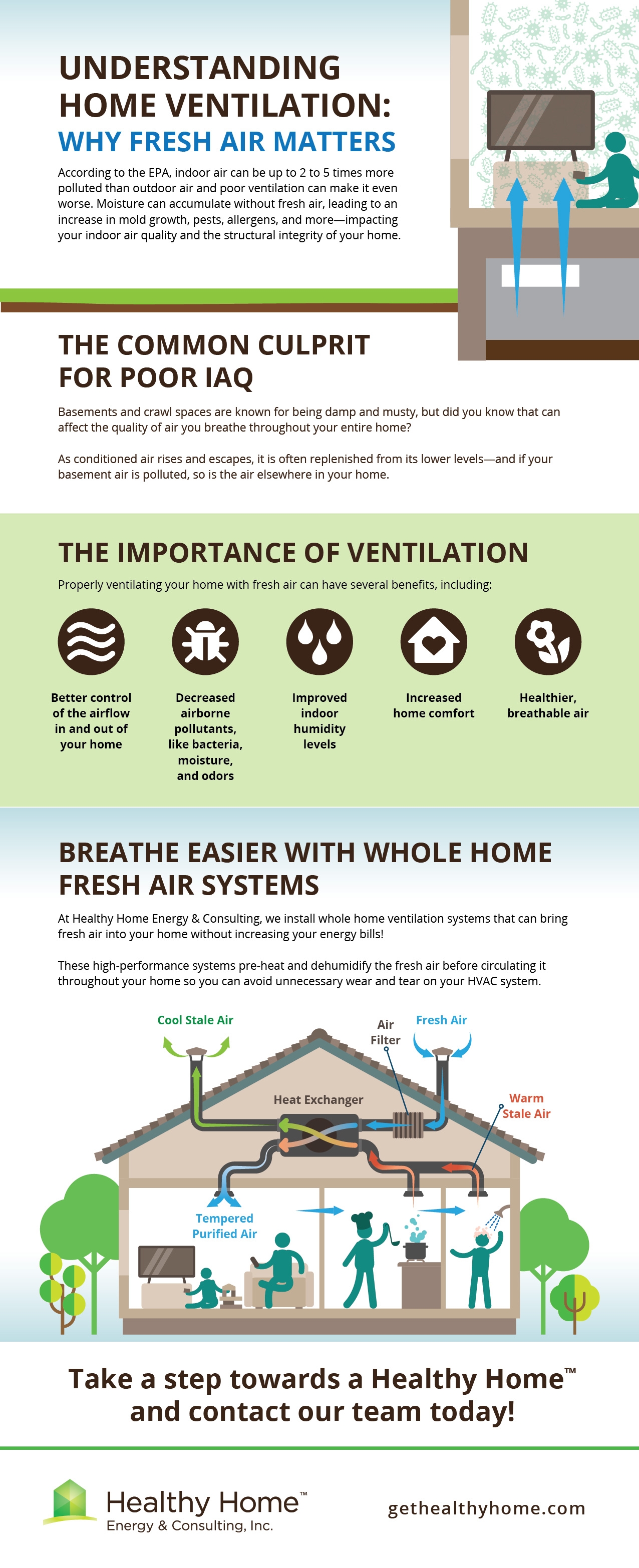Home Ventilation Melbourne Checklist for Allergy and Asthma Sufferers
Wiki Article
The Duty of Home Ventilation in Protecting Against Mold And Mildew and Indoor Allergens
Home ventilation is an essential part in keeping a healthy and balanced interior atmosphere. It regulates humidity degrees, which can avoid the growth of mold and mildew and the buildup of allergens. Many house owners overlook the value of proper air flow, often leading to undetected concerns. Recognizing how ventilation systems feature and their influence on air high quality might be the trick to a much healthier space. What steps can be required to boost these systems efficiently?Comprehending Home Ventilation Solutions
While lots of home owners might forget the value of air flow, comprehending home ventilation systems is important for keeping indoor air high quality and avoiding mold development - Home Ventilation Melbourne. These systems facilitate the exchange of stale interior air with fresh outdoor air, successfully decreasing contaminants and moisture levels. Usual types include natural ventilation, which depends on wind and temperature distinctions, and mechanical ventilation, which utilizes fans and air ducts to manage airflow. Furthermore, well balanced air flow systems incorporate both approaches to optimize air quality. Properly made and kept air flow systems can aid regulate temperature and moisture, making certain a comfy living setting. House owners ought to take into consideration factors like home format, occupancy, and climate when selecting a ventilation system to finest match their demands and boost total air high quality
The Effect of Moisture on Mold Growth
Moisture plays an important function in mold growth, making it an important variable for home owners to check. Mold thrives in settings where moisture degrees exceed 60%, as these problems give the moisture required for spores to germinate and multiply. High humidity can arise from different resources, consisting of poor ventilation, water leakages, and cooking or showering activities. When moisture degrees stay elevated, mold and mildew can develop rapidly on natural products such as material, drywall, and timber. Property owners must utilize dehumidifiers and assure correct ventilation in locations vulnerable to moisture, such as bathrooms and cellars. Maintaining interior humidity between 30% and 50% can considerably decrease the threat of mold development, adding to a healthier living atmosphere.Determining Common Indoor Allergens
Indoor atmospheres can harbor a range of allergens that affect health and wellness and comfort. Common indoor allergens include allergen, pet dog dander, mold and mildew spores, and plant pollen. Dirt termites prosper in bed linen, carpetings, and upholstery, feeding upon organic material and contributing to respiratory system concerns. Pet dog dander, made up of small flakes from skin and fur, can set off allergies in delicate people. Mold spores, typically present in damp locations, can impact and proliferate air quality. In addition, plant pollen can infiltrate homes through open Home Ventilation Melbourne windows or on apparel. Recognizing these irritants is vital for maintaining a healthy and balanced interior atmosphere. Awareness of their visibility permits house owners to take proactive measures to minimize direct exposure and enhance overall indoor air top quality.Benefits of Proper Air Flow
Correct ventilation is important for keeping a healthy and balanced indoor setting, as it assists to regulate air top quality and minimize the accumulation of pollutants. Adequate air movement assists in the exchange of outside and indoor air, therefore thinning down unsafe materials such as unstable organic substances, allergens, and dirt. This procedure not only boosts comfort yet likewise adds to the general well-being of owners by reducing respiratory problems (Home Ventilation Melbourne). Appropriate air flow efficiently manages moisture levels, decreasing the chance of mold development and fostering a drier environment conducive to health. In addition, it can enhance power performance by ensuring that cooling and heating systems operate much more successfully, bring about reduced power prices. Overall, proper ventilation is an important part in advertising a healthy and secure home

Tips for Improving Home Ventilation
Many home owners might forget it, boosting home ventilation is vital for improving air quality and preventing mold and mildew development. One efficient technique is to on a regular basis open windows to promote cross-ventilation, permitting fresh air to distribute. Setting up exhaust fans in cooking areas and washrooms can efficiently get rid of moisture-laden air, minimizing humidity levels. Home owners must likewise consider making use of air purifiers with HEPA filters to capture irritants and contaminants. Frequently maintaining cooling and heating systems, consisting of changing filters, warranties come to a head airflow and performance. Sealing leakages around doors and windows can protect against outside air from getting in, which assists preserve a regular indoor atmosphere. Incorporating houseplants can naturally enhance air top quality while adding visual value to the home.Frequently Asked Inquiries
How Frequently Should I Clean My Home Ventilation System?
Figuring out just how frequently to clean a home ventilation system depends upon various elements, including usage and ecological conditions. Home Ventilation Melbourne. Generally, experts suggest an extensive cleaning every 3 to five years to maintain ideal airflow and effectivenessCan Plants Assist Decrease Indoor Allergens?
Study suggests that certain indoor plants might help in reducing allergens by boosting air high quality and boosting moisture. Their effectiveness varies, and maintaining a tidy atmosphere remains essential for managing interior allergens successfully.What Types of Air Filters Are Ideal for Mold And Mildew Avoidance?

Exist Specific Air Flow Requirements for Cellars?

Exactly how Do I Know if My Air Flow Is Working Properly?
To establish efficient air flow, one should keep track of humidity levels, check air flow via vents, and observe indications of condensation or stagnant air. Routine assessments can show whether the system adequately distributes and exchanges interior air.Understanding exactly how ventilation systems feature and their effect on air quality might be the key to a healthier living space. While numerous home owners might ignore the significance of air flow, understanding home air flow systems is vital for preserving indoor air quality and protecting against mold growth. Typical kinds include natural ventilation, which relies on wind and temperature differences, and mechanical air flow, which makes use of fans and air ducts to manage airflow. Appropriate ventilation is crucial for maintaining a healthy and balanced indoor environment, as it assists to regulate air quality and lower the build-up of pollutants. Lots of property owners may forget it, improving home air flow is important for enhancing air top quality and stopping mold and mildew development.
Report this wiki page